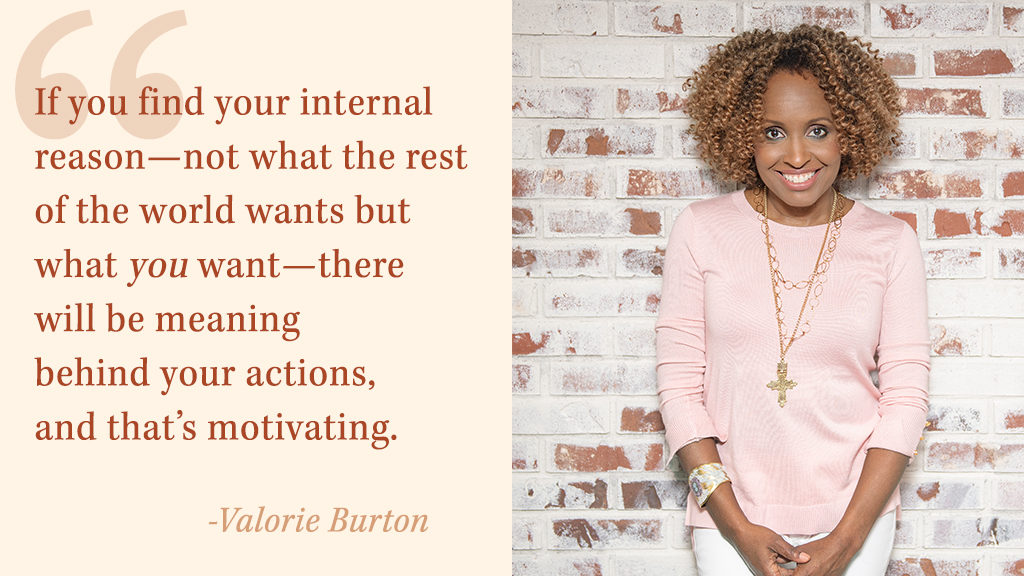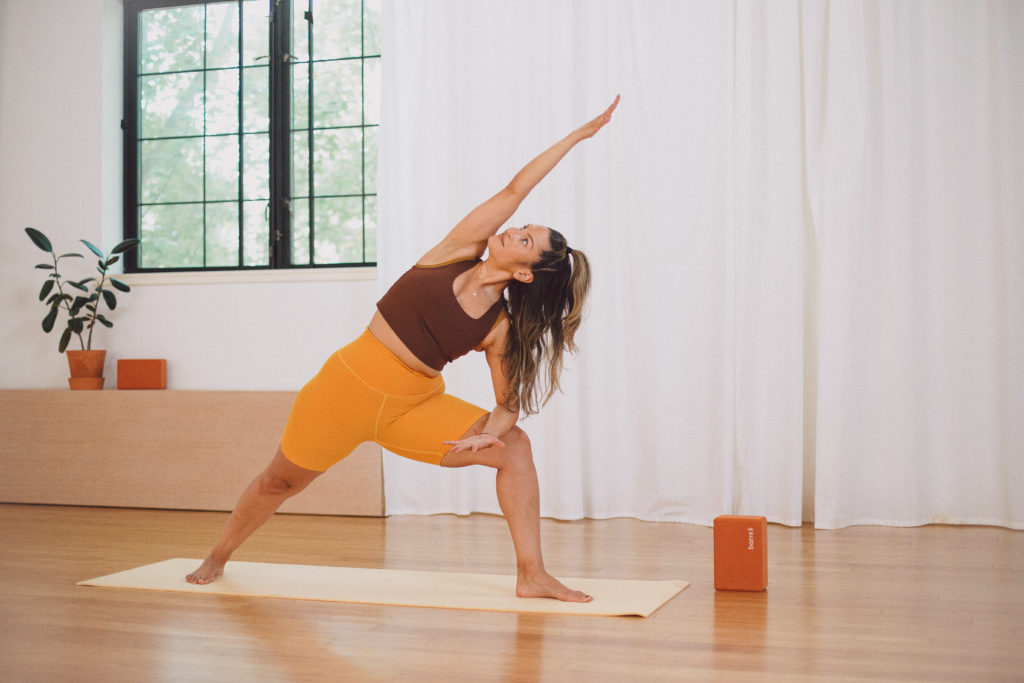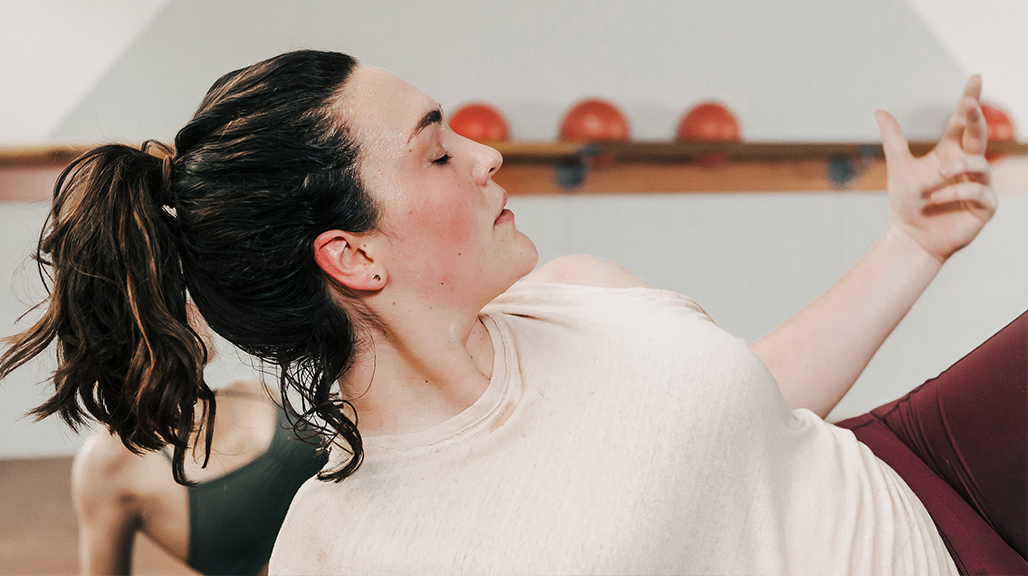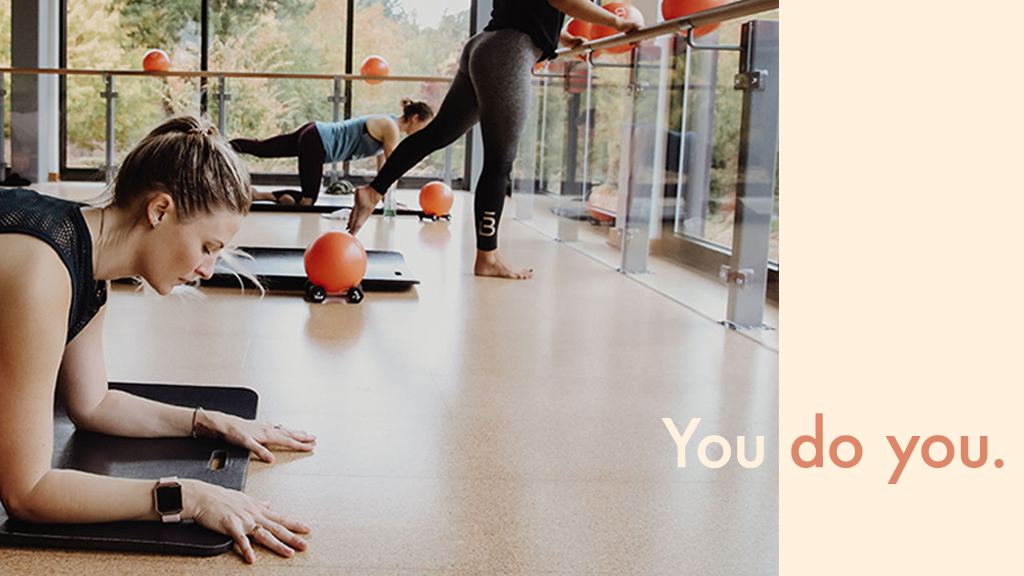Connect
Valorie Burton Is On A Mission To Help You Reach Your Goals
When we decided to create a program about creating healthy habits, we immediately thought of Valorie Burton. The founder of The Coaching and Positive Psychology (CAPP) Institute, an international speaker on resilience and happiness, and author of 13 books—including the just-released Let Go of the Guilt: Stop Beating Yourself Up and Take Back Your Joy—Valorie has dedicated her career to helping people identify and work toward their goals.
We chatted with Valorie about what it takes to create healthy habits, and—in true life-coach form—she offered tips that are insightful, practical, and, best of all, actionable. We’ve been putting them to use and are already feeling the difference. Read on for Valorie’s advice, and share the healthy habit(s) you plan to create in the comments below!
Before you commit to your goal, check your expectations.
“So many of us operate on outdated expectations,” Valorie explains. “We expect ourselves to perform at the same level as before, to have as much energy as we used to—but we need to realize that things have actually changed.” This year, with many of our lives turned upside-down, that’s more true than ever. When we build a goal on outdated expectations, we’re setting ourselves up to fail. Instead, Valorie recommends being honest with yourself about the barriers and updating your expectations based on the current reality rather than a past version of your life.
Once you’ve established realistic expectations, make them specific.
In Valorie’s years of experience coaching clients, she’s noticed that one of the biggest—and most common—barriers to creating healthy habits is being vague about your goals. “We say things like, ‘I should exercise more,’” says Valorie. “But you could exercise every day, and still it would be possible to exercise more.” Right away, you feel like you’ve failed. Instead, get very specific about what success looks like to you. You might even want to write it down so you can check it off when you’ve accomplished it. And be specific when it comes to the timeline, too. “Instead of saying, ‘I’m going to do X from now on,’ try ‘I’m going to try this for three weeks.’” At the end of the timeframe, give yourself space to look back and ask yourself what worked, what didn’t work, and what might work better, and then adjust your goal.
Avoid goal fatigue.
“The quickest way to burn out on a goal is by overdoing it,” says Valorie. She recommends taking breaks where you allow yourself to savor how you feel and celebrate how much progress you’ve made. And build in rewards along the way, even if they’re small. “We know that anticipation is a happiness trigger, and happiness triggers create more positive emotion—which helps us persevere when things get hard,” says Valorie. “So be sure to create things to look forward to. Recognize that it takes energy to move toward your goal, and do things that will boost that energy.”
Create positive peer pressure.
We tend to think of peer pressure as a bad thing, but when it comes to creating healthy habits, it can actually help. “Having friends in this with you helps give you a level of accountability,” says Valorie. And if possible, try including a mix of peers. “An ultra-disciplined friend can inspire you,” says Valorie, “and someone who’s less motivated can be helpful when you need to share your struggles. When we realize we’re not the only one struggling, we’re not as hard on ourselves.”
Have a purpose behind your goals.
“Vision boards are great, but they need to be rooted in purpose to be meaningful and motivating,” says Valorie. “If you don’t know why you’re trying to create this habit, your motivation will slip. But if you find your internal reason—not what the rest of the world wants but what you want—there will be meaning behind your actions, and that’s motivating.” Just as barre3 encourages you to focus on how exercise makes you feel, Valorie encourages her clients to do the same with goals. “I always tell them that when they’re creating a goal, it’s important to start with ‘How do I want to feel? What will help me feel that way?’ This is so powerful.”
Use your guilt to your advantage—but don’t let it get the best of you.
Having just authored a book about guilt, Valorie is well-versed in the role it plays when creating healthy habits. On the upside, guilt can actually be a motivator. “Research shows that one of the most common traits of successful people is conscientiousness,” she says, “and with that comes a tendency to be guilt-prone.” That’s not necessarily a bad thing. If we feel guilty about something and then make a promise to ourselves to change, guilt is acting as a positive motivator.” But guilt can also steer us toward self-sabotage when it comes to creating healthy habits. As Valorie explains in Let Go of the Guilt, happiness is a risk, but guilt is safe. “Happiness puts us in unfamiliar territory,” she explains. Striving for it is a risk, because it forces us out of our comfort zone and opens us up to failure.” Guilt, on the other hand, is safe. “We can get comfortable with things we don’t actually want,” she explains. Stepping out of that comfort zone is scary, so we cushion the fear with the comfortable feeling of guilt.”
If you notice that you’re experiencing guilt as you’re going through The 21-Day Healthy Habits Program, or if you’re tempted to fall back on it for comfort, give yourself permission to explore the feeling, and then reassess your goal based on Valorie’s tips. Have you set realistic and specific expectations? Are you taking it gradually rather than overdoing it? Is your reason for creating your goal coming from within, or is it more external?
Above all, as Valorie suggested, exercise compassion. There’s no prize to be won, no one to beat, no finish line to cross with The 21-Day Healthy Habits Program. There’s just you, your goals, and an amazing opportunity to learn and grow.
Join us in forming healthy habits this fall by signing up for the 21-Day Healthy Habits Program. With 21 days of workouts, wisdom, and motivation, this program is designed to meet you exactly where you are. Sign up here.
When we decided to create a program about creating healthy habits, we immediately thought of Valorie Burton. The founder of The Coaching and Positive Psychology (CAPP) Institute, an international speaker on resilience and happiness, and author of 13 books—including the just-released Let Go of the Guilt: Stop Beating Yourself Up and Take Back Your Joy—Valorie has dedicated her career to helping people identify and work toward their goals.
We chatted with Valorie about what it takes to create healthy habits, and—in true life-coach form—she offered tips that are insightful, practical, and, best of all, actionable. We’ve been putting them to use and are already feeling the difference. Read on for Valorie’s advice, and share the healthy habit(s) you plan to create in the comments below!
Before you commit to your goal, check your expectations.
“So many of us operate on outdated expectations,” Valorie explains. “We expect ourselves to perform at the same level as before, to have as much energy as we used to—but we need to realize that things have actually changed.” This year, with many of our lives turned upside-down, that’s more true than ever. When we build a goal on outdated expectations, we’re setting ourselves up to fail. Instead, Valorie recommends being honest with yourself about the barriers and updating your expectations based on the current reality rather than a past version of your life.
Once you’ve established realistic expectations, make them specific.
In Valorie’s years of experience coaching clients, she’s noticed that one of the biggest—and most common—barriers to creating healthy habits is being vague about your goals. “We say things like, ‘I should exercise more,’” says Valorie. “But you could exercise every day, and still it would be possible to exercise more.” Right away, you feel like you’ve failed. Instead, get very specific about what success looks like to you. You might even want to write it down so you can check it off when you’ve accomplished it. And be specific when it comes to the timeline, too. “Instead of saying, ‘I’m going to do X from now on,’ try ‘I’m going to try this for three weeks.’” At the end of the timeframe, give yourself space to look back and ask yourself what worked, what didn’t work, and what might work better, and then adjust your goal.
Avoid goal fatigue.
“The quickest way to burn out on a goal is by overdoing it,” says Valorie. She recommends taking breaks where you allow yourself to savor how you feel and celebrate how much progress you’ve made. And build in rewards along the way, even if they’re small. “We know that anticipation is a happiness trigger, and happiness triggers create more positive emotion—which helps us persevere when things get hard,” says Valorie. “So be sure to create things to look forward to. Recognize that it takes energy to move toward your goal, and do things that will boost that energy.”
Create positive peer pressure.
We tend to think of peer pressure as a bad thing, but when it comes to creating healthy habits, it can actually help. “Having friends in this with you helps give you a level of accountability,” says Valorie. And if possible, try including a mix of peers. “An ultra-disciplined friend can inspire you,” says Valorie, “and someone who’s less motivated can be helpful when you need to share your struggles. When we realize we’re not the only one struggling, we’re not as hard on ourselves.”
Have a purpose behind your goals.
“Vision boards are great, but they need to be rooted in purpose to be meaningful and motivating,” says Valorie. “If you don’t know why you’re trying to create this habit, your motivation will slip. But if you find your internal reason—not what the rest of the world wants but what you want—there will be meaning behind your actions, and that’s motivating.” Just as barre3 encourages you to focus on how exercise makes you feel, Valorie encourages her clients to do the same with goals. “I always tell them that when they’re creating a goal, it’s important to start with ‘How do I want to feel? What will help me feel that way?’ This is so powerful.”
Use your guilt to your advantage—but don’t let it get the best of you.
Having just authored a book about guilt, Valorie is well-versed in the role it plays when creating healthy habits. On the upside, guilt can actually be a motivator. “Research shows that one of the most common traits of successful people is conscientiousness,” she says, “and with that comes a tendency to be guilt-prone.” That’s not necessarily a bad thing. If we feel guilty about something and then make a promise to ourselves to change, guilt is acting as a positive motivator.” But guilt can also steer us toward self-sabotage when it comes to creating healthy habits. As Valorie explains in Let Go of the Guilt, happiness is a risk, but guilt is safe. “Happiness puts us in unfamiliar territory,” she explains. Striving for it is a risk, because it forces us out of our comfort zone and opens us up to failure.” Guilt, on the other hand, is safe. “We can get comfortable with things we don’t actually want,” she explains. Stepping out of that comfort zone is scary, so we cushion the fear with the comfortable feeling of guilt.”
If you notice that you’re experiencing guilt as you’re going through The 21-Day Healthy Habits Program, or if you’re tempted to fall back on it for comfort, give yourself permission to explore the feeling, and then reassess your goal based on Valorie’s tips. Have you set realistic and specific expectations? Are you taking it gradually rather than overdoing it? Is your reason for creating your goal coming from within, or is it more external?
Above all, as Valorie suggested, exercise compassion. There’s no prize to be won, no one to beat, no finish line to cross with The 21-Day Healthy Habits Program. There’s just you, your goals, and an amazing opportunity to learn and grow.
Join us in forming healthy habits this fall by signing up for the 21-Day Healthy Habits Program. With 21 days of workouts, wisdom, and motivation, this program is designed to meet you exactly where you are. Sign up here.










0 people have left a comment. Join the conversation!
View Comments